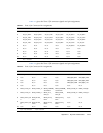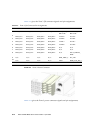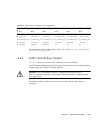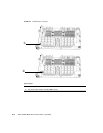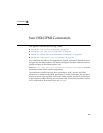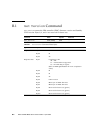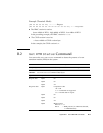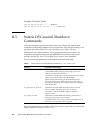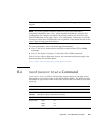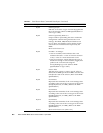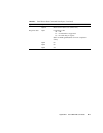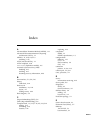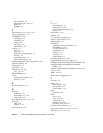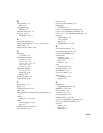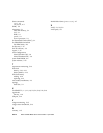
B-6 Netra CP3260 Blade Server User’s Guide • April 2009
Byte4 Sensor type byte
Indicates event class or type of sensor that generates
the event message. (Refer to IPMI
specification for
sensor type codes.)
Byte5 Sensor # (optional); Write to 0
Unique number representing the sensor within the
management controller that generates the event
message. The BIOS, OBP, ILOM, and OS does not
have to know and send the sensor number for the
sensors that are maintained and reported by the
IPMC.
Reserved for future use.
Byte6 EventDir | EventType
• 1 bit for EventDir, which indicates the event
transition direction. A value of 0 means assertion
event; a value of 1 means deassertion event.
• 7 bits for EventType, which indicates the type of
threshold crossing or state transition (trigger) that
produces the event. Encode using the
Event/Reading Type code. (Refer to IPMI
specification for type codes.)
Byte7 Sensor offset
Tells the sensor generic or sensor specific offset as
defined in the IPMI specification. IPMC uses this data
to define the state of the sensors. (Refer to the IPMI
specification.)
Byte8 Event Data 1
Represents the remainder of the event message data
according to the class of the event type for the sensor
(threshold, discrete, or OEM). (Refer to the IPMI
specification.)
Byte9 Event Data 2
Represents the remainder of the event message data
according to the class of the event type for the sensor
(threshold, discrete, or OEM). (Refer to the IPMI
specification.)
Byte10 Event Data 3
Represents the remainder of the event message data
according to the class of the event type for the sensor
(threshold, discrete, or OEM). (Refer to the IPMI
specification.)
Byte11 Reserved for future use. (Write zero)
TABLE B-3 Send Sensor State Command Data Bytes (Continued)
Type Byte Data Field



